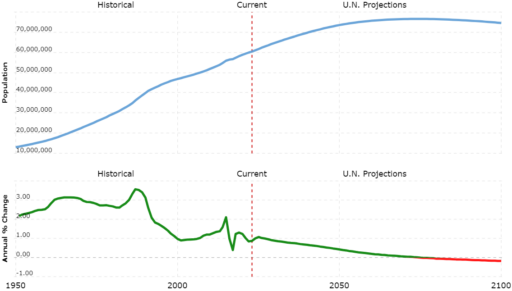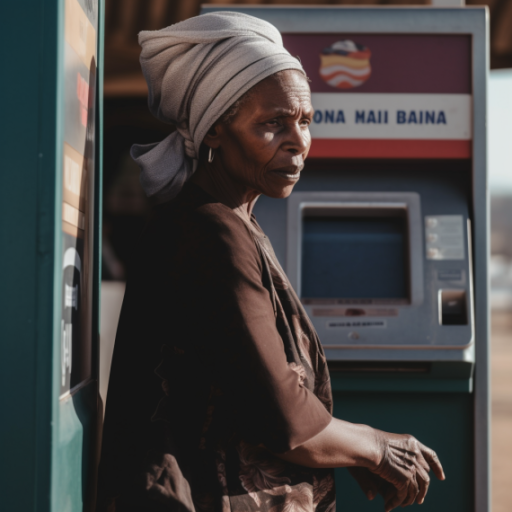Sitemap: Living Abroad > Living in South Africa
For expats in South Africa, successfully blending investment strategies with a fulfilling lifestyle involves staying informed, embracing cultural diversity, and actively participating in both the financial and social aspects of the host country.
This page will explore investing and living in South Africa as an expat. It will go over certain topics like:
- Living in South Africa 101
- Cost of living in South Africa
- Investing in South Africa
- South Africa form of government
- South Africa economy
If you are looking to invest as an expat or high-net-worth individual, which is what I specialize in, you can email me (advice@adamfayed.com) or WhatsApp (+44-7393-450-837).
Living in South Africa 101
Living conditions in South Africa
Is South Africa a good place to live? There is a wide range of lifestyle alternatives, cultural variety, and modern infrastructure in major cities like Durban, Johannesburg, and Cape Town. In these urban centers, you can find first-rate medical care, schools, and nightlife options. Crime rates and the fact that various areas may feel safer than others are obstacles they must overcome.
Conversely, rural locations offer a distinct array of living circumstances. Traditional ways of living may prevail, and there may be limited access to modern conveniences. A large portion of rural towns’ economy is based on agriculture.
It should be mentioned that South Africa has encountered economic and social problems, such as inequality, poverty, and unemployment.
Cost of living in South Africa
Here’s an overview of the living expenses you have to prepare for when:
Estimated Monthly Living Costs in South Africa (Excluding Rent):
- For single person: 10,693.5 Rand
For Family of Four: 37,055.9 Rand
Typical Expenses
- Inexpensive Restaurant Meal: 150.00 Rand
- Utilities (Electricity, Heating, Cooling, Water, Garbage) for 85m² Apartment: 1,890.52 Rand
Renting Apartments:
- 1 Bedroom in City Centre: 8,467.68 Rand
- 1 Bedroom Outside of Centre: 6,215.08 Rand
- 3 Bedrooms in City Centre: 16,010.10 Rand
- 3 Bedrooms Outside of Centre: 12,289.26 Rand
Purchasing Apartments:
- Price per Square Meter in City Centre: 18,378.46 Rand
- Price per Square Meter Outside of Centre: 14,189.15 Rand
South Africa language
There are 11 official languages in the country, namely:
- IsiZulu
- IsiXhosa
- Afrikaans
- English
- Sepedi
- Setswana
- siSwati
- Tshivenda
- Xitsonga
- isiNdebele
- Northern Sotho
Although a large portion of the South African population is bilingual or multilingual, English is by far the most widely spoken language. The majority of the country’s formal business and commerce takes place in this language.
South Africa currency
This country’s money is called the South African rand, and it’s divided into 100 cents.

South Africa population
The population of South Africa is 60.4 million in 2023, up 0.87% from the previous year, according to Macrotrends.
South Africa weather
Temperate climate with regional variations dominates the country:
- Mediterranean climate in Western Cape. Weather is warm and dry in summer and chilly and damp in winter.
- Subtropical coastal climates. Winters are pleasant, summers humid.
- Western Free State and the Northern Cape are semi-arid to arid. High summers, low rain.
- It’s high-altitude on the Highveld, including Johannesburg. Dry, chilly winters with occasional frost contrast with warm summers with afternoon thunderstorms.
- Desert climates characterize Namakwa and the Karoo, with scorching summers and chilly winters.
Best South Africa cities to live for expats
- Cape Town’s Table Mountain and beautiful beaches attract people seeking a laid-back lifestyle and dynamic culture. Digital nomads seeking work-life balance flock there.
- Johannesburg, the country’s economic center, offers many jobs and a vibrant urban culture. Expats seeking a lively city experience flock to its bustling markets, numerous cultural activities, and cosmopolitan ambiance.
- The administrative capital, Pretoria, is more recognized for its relaxed vibe, old architecture, and streets lined with jacaranda trees. It is a central location for several academic institutions, diplomatic ministries, and government offices.
- Durban, a subtropical city with stunning beaches, provides a laid-back atmosphere and diverse cuisine. Unique charm comes from its cultural mix and large Indian community.
- Port Elizabeth, known as the Friendly City, welcomes a slower way of life. Its lovely beaches and burgeoning arts scene make it a desirable destination for beach bums.
- Vineyards and wine plantations are what make the Western Cape town Stellenbosch famous. With its picturesque surroundings and emphasis on outdoor activities, this university town boasts a strong intellectual and cultural presence.
South Africa visa types
There are various kinds of visas in South Africa per the country’s Home Affairs department, such as:
- Medical treatment visas
- Entertainment industry visas
- Conference attendance visas
- Treaty condition compliance visas
- Boat crew visas
- Cultural, economic, and social exchange program visas
- Transit visas (foreigners traveling to neighboring countries)
Temporary Residence Visas
Visa for Business
A business visa is required for any foreign national who intends to engage in the South African economy through the launch of a new enterprise or the acquisition of an existing one. A minimum capital contribution amount is required of all applicants.
Work Permit
If there is a shortage of qualified South African natives, work permits will be granted to foreign nationals. Depending on the type of work visa being filed for, these visas are provided for a specific length.
Visas for Corporate
Companies (such as farming operations or mining groups) can bring in a set number of employees with different levels of expertise with a corporate visa. A business visa is valid for a maximum of three years.
Visas for Student Status
Fill out Form BI-1738 if you are an international student interested in studying in South Africa.
Exchange Visas
Anyone under the age of 25 who wishes to take part in cultural, economic, or social exchange programs run by a government agency or a public university in partnership with a government agency in another country can apply for an exchange visa.
Retired Person Visa
Anyone who meets the financial criteria may apply for a retired persons’ permission to retire in South Africa.
Family Member’s Visa
If a citizen or permanent resident can offer the required financial assurance, the Director-General may grant a relative’s visa to a foreign national who is an immediate family relation of that person for the specified duration.
Housing in South Africa
Real estate is available for purchase or rental to expats in South Africa. Apartments in the city, suburban homes for families, and farmhouses in the country are all part of the housing alternatives.
The lodgings are of varying quality, but they are usually pleasant, and many of them have large living and outdoor spaces. Social housing programs are accessible to individuals who qualify, and renting is another prevalent choice.
South Africa safety
Concerns about personal safety among expatriates are at an all-time high in South Africa (48% of expats report feeling insecure, compared to 9% internationally), as per Internations.
Because violent crimes, like gang activity, tend to be area-specific, foreigners are less likely to be victims of them.
Income disparity is a major factor in South African crime, especially theft-related offenses.
Banking in South Africa for expats

Expats usually need a passport and a current work permit to start the procedure of creating a bank account in South Africa. They may also be required to provide a letter from their employer confirming their income in certain cases.
Expats’ ability to open some types of bank accounts is contingent upon their residency status. Only those with valid temporary or permanent resident visas are able to open resident bank accounts; tourists are only allowed to open non-resident accounts.
Four gigantic banking conglomerates—Standard Bank Group, FirstRand Ltd (First National Bank’s operator), Absa Group, and Nedbank Group—control the majority of South Africa’s banking industry. These financial organizations cater to expats by providing a variety of account options and services.
In addition, neobanks and online-only banks offer good alternatives for people who travel a lot or who would rather not pay a lot to keep their accounts active.
Related content:
Biggest Private Banks in South Africa
Best Banks For The Wealthy In South Africa
Money transfer in South Africa
Expats can transfer money in and out of South Africa in numerous ways. Many money transfer services include Western Union, WorldRemit, Xoom, and Mukuru. They offer cash pickup, bank transfers, and airtime top-ups. They also accept bank accounts, debit cards, and credit cards.
Related content:
What Are The Best Ways Of Sending Money Out Of South Africa?
Getting money out of South Africa as an expat
South Africa jobs
The most in-demand jobs in South Africa are supply chain manager, translator, software engineer, agricultural engineer, data scientist, demand planner, procurement manager, sales representative, financial accountant, health and safety manager, network administrator, mechanical engineer, process engineer, and draughtsman Cloud computing, AI, machine learning, software development, and cybersecurity are in high demand. The legal sector needs more computer capabilities.
South Africa minimum wage currently stands at 25. 42 rand per hour, increased from a previous rate of 23.19 rand.
South Africa healthcare system
Patients in South Africa have access to both public and private healthcare systems. Major cities including Johannesburg, Cape Town, Durban, and Pretoria serve as hubs for the continent’s top private healthcare system. Nevertheless, relying on the location, it could be difficult to get contemporary medical facilities.
Long wait times, outdated facilities, and an absence of specialized treatment are some of the problems plaguing the public healthcare system. Expats must have private global medical insurance to guarantee they may get the best care possible, with the least amount of wait time, from a variety of doctors in more private and pleasant facilities.
Pension system in South Africa
An assortment of pension and provident fund arrangements, voluntary savings, and a non-contributory, means-tested public benefit program make up South Africa’s pension system for expats.
While certain foreign nationals working in South Africa may be able to collect a pension from the country, this is usually contingent on their income, so many foreign nationals may not be eligible. Consequently, a large number of expat retirees in South Africa depend on occupational or private pension plans.
South Africa education
Public, private, and international schools are all available to expats in South Africa. Private schools in the country are highly valued, thus many families who live abroad choose to send their children to them.
Another common choice for expat families is sending their children to an international school, where they can meet other families living abroad.
Related content: 10 Best International Schools In South Africa
Living in South Africa pros and cons
Living in South Africa has several benefits. To start, the cost of living is typically lower for individuals earning foreign money compared to local citizens. Also, the private healthcare system is top-notch. ‘Work to live’ mentality, friendliness, and a carefree attitude are hallmarks of southern African culture.
Many people prefer living here because of the comfortable weather, stunning scenery, and abundance of outdoor activities. Not only that, but housing alternatives for expats are typically large, pleasant, and reasonably priced, which adds to their quality of life.
However, the nation has one of the world’s highest crime rates, including both violent and nonviolent crimes. Another issue that might impact expats is corruption. Racism is still a problem that affects society dynamics, even though it is being worked on.
There are parts of the country with well-kept infrastructure and parts that don’t have basic amenities.
How to live in South Africa: Visa, Residency and Citizenship

South Africa entry requirements
At least six months should be left on your passport after your leaving date. Fortunately, 90-day tourism or business trips do not require a visa. Travelers should check immunization regulations and get the relevant shots and certificates before leaving.
For entry into South Africa, passports must have two consecutive blank visa pages, excluding endorsement pages. For entry and leave, you must use your South African passport if you are 18 or older. Using a foreign passport is unlawful.
If you need a visa or a stay over 90 days, apply to the South African embassy or consulate in your country. Visitors with children should consult the Department of Home Affairs website for the latest information on South African port entrance procedures for minors.
Investing in South Africa
South Africa form of government
Constitutional democracy with a parliamentary system governs South Africa. Executive, legislative, and judicial powers are separated in the political system. Head of state and government, the South African president.
Separate but equal chambers make up South Africa’s parliament, which is known as the National Council of Provinces (NCOP). Public votes determine who serves in the National Assembly, while a fixed number of delegates from each province represent them in the NCOP.
Elected by the National Assembly, the President selects Cabinet members to carry out the government’s executive tasks. In turn, ministers who oversee different branches of government make up the Cabinet.
The Bill of Rights, which establishes basic human rights and ideologies, forms the basis of South Africa’s constitutional structure. Constitutional interpretation and upholding are the purview of the judiciary, which operates apart from the legislative and executive departments.
To make sure that everyone has a chance to vote for their representatives, the democratic system permits elections at regular intervals. Protecting individual rights within the bounds of the constitution and fostering openness and accountability are the goals of the governmental system.
South Africa economy
The following are some of South Africa’s most important economic areas:
- Mining, agriculture, and fisheries
- Manufacturing and assembly of vehicles
- Food processing
- Textiles and clothing
- Telecommunications, energy, finance, and business services
- Travel, real estate, factories, information technology, transportation, and retail and wholesale commerce
Having said that, the country’s parallel economy and extremely high and persistent inequality rates are still issues, according to The World Bank. Both historical exclusion and the current model of economic growth—which does not benefit the poor and fails to provide enough jobs—contribute to the persistence of high inequality.
Investments in South Africa for beginners
Important considerations before beginning to invest include your financial requirements, risk tolerance, investment horizon, and tax consequences. To be sure your investment plan is right for you, it’s smart to talk to a financial planner or specialist.
Can foreigners buy property in South Africa?
Anyone who meets the visa criteria to live and work in South Africa can buy property without limits. It is possible for non-residents and foreign nationals to buy property remotely, but they must comply with all local laws.
A valid passport, permanent resident permit, valid visa, or endorsement enabling residence in South Africa is required of any foreign nationals wishing to own real estate in the country.
To buy a home in South Africa, you need a local bank account even if you don’t need any financing.
Investing money in South Africa: Other investment options
South Africa offers local and foreign investors many investment options. ETFs, stock-traded investment funds, are popular investments. Diversification, low costs, and ease of usage are ETF benefits. Another popular option for South Africans is tax-free savings accounts (TFSAs).
Risk-averse investors prefer bank fixed deposits because they offer stable, low-risk investments with guaranteed interest rates. Micro-Investing, which lets people invest modest sums, is also popular. This strategy makes investing easier, especially for people with little funds.
South African unit trusts allow investors to pool their capital and invest in a diverse portfolio. This mechanism provides convenience and access to specialist markets, making it desirable to investors seeking greater exposure. These alternatives suit a variety of investor preferences and risk tolerances as South Africa develops as an investment destination.
Related content:
Islamic investments in South Africa: What are best choices?
12 Best Investment Options In South Africa
Investing in gold in South Africa
Gold investing in South Africa gives local and foreign investors many chances. Gold mining is very important to the economy.
You can buy gold mining stocks or royalties. Gold ETFs are traded on stock markets and give gold exposure.
Investing in bonds South Africa
RSA Retail Savings Bonds can be purchased in the South African post office or online through their website. These bonds have a major drawback—they yield lower returns than other investments. Investment results should be weighed against financial goals and risk tolerance.
Corporate Bonds produced by firms deliver higher returns than government bonds. They have high risk but good profits. Corporate bonds may be more volatile than conservative investments.
Government Bonds are considered a low-risk investment option. Conservative investors seeking stability should choose them despite their lower yields than corporate bonds. Government bonds can balance risk and return in varied investing strategies.
Business investors in South Africa
South Africa is young, vibrant, and enterprising, offering global investors enormous chances. The country offers incentives for foreign industrial and renewables companies.
South African business startup is rapid and cheap. The country also has a robust network of private investors prepared to bet on new firms.
Pained by financial indecision?

Adam is an internationally recognised author on financial matters with over 830million answer views on Quora, a widely sold book on Amazon, and a contributor on Forbes.

